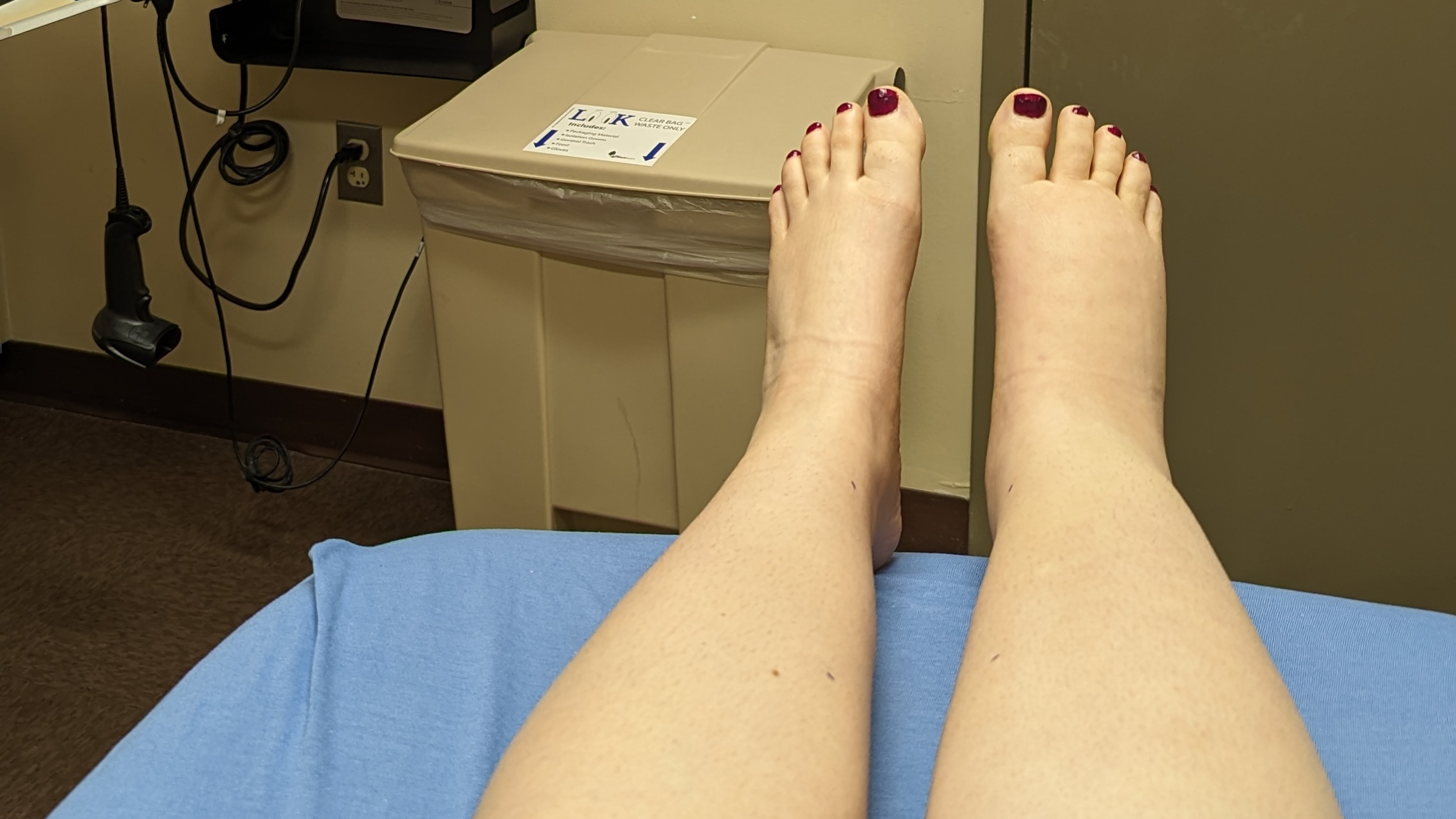Lymphedema. Sounds like a complex word, but when you break it down into two parts its meaning is pretty simple: “lymph” is the clear, yellowish fluid circulating through the lymphatic system, and “edema” means swelling caused by an accumulation of fluid. Lymphedema, then, is an accumulation of lymph fluid.
We know what it means, but what about the origin of the word itself? If you’re a word nerd like me, you may have wondered where “lymph” comes from, or why “edema” is sometimes spelled “oedema.” Well – get your reading glasses on, folks, because we’re about to delve into the surprisingly exciting etymology of lymphedema.
lymph (n.)
According to the Online Etymology Dictionary, the word lymph derives from the Latin lympha, meaning “clear water, a goddess of water.” It’s a variant of lumpæ, which means “waters,” altered by the influence of the Greek nymphe or nymph, which translates to “goddess of spring.”
Lympha is a deity embodying the divine aspect of water. She’s included in the ancient Roman scholar Marcus Terentius Varro’s list of agricultural deities in his work Rerum rusticarum libri III (Agricultural Topics in Three Books):
Nec non etiam precor Lympham ac Bonum Eventum, quoniam sine aqua omnis arida ac misera agri cultura, sine successu ac bono eventu frustratio est, non cultura.
This translates to “And I shall not fail to pray also to Lympha and Bonus Eventus, since without moisture all tilling of the ground is parched and barren, and without success and ‘good issue’ it is not tillage but vexation.” So — if you were a farmer in ancient Rome, Lympha was the goddess to know for your crops to be well-watered and flourishing!
Lympha has both a unified and a multiple aspect; the pluralized Lymphae were honored by the ancient Romans as water deities, showing up in various inscriptions, tablets, and dedications within the context of their agricultural, healing, and even sexual properties. According to Floyd G. Ballentine’s 1904 article “Some Phases of the Cult of the Nymphs” published in Harvard Studies in Classical Philology, Lymphae were prayed to for rain as early as the beginning of the first century B.C.
If you sometimes feel like your lymphedema is driving you crazy, you’re not alone — it’s in its etymological DNA. In many ancient religions, water goddesses are frequently sources of inspiration or divine revelation to the point of madness or frenzy, and the Roman Lymphae were no exception.
The Latin verb lympho and its conjugations translate to mean “be in a state of frenzy; derange; drive crazy.” (Makes sense to anyone who’s been driven mad by their compression bandages or painful swelling!) The Roman grammarian Festus explains how the Greek word nympha influenced the Latin Lymphae to mean a sort of possession or madness: “Popular belief has it that whoever see a certain vision in a fountain, that is, an apparition of a nymph, will go quite mad. These people the Greeks call numpholêptoi [‘Nymph-possessed’] and the Romans, lymphatici.”
The Christianization of the Roman Empire during late antiquity solidified the reputations of Lymphae as dangerous spirits: the early Christian author Tertullian warned of “unclean” “hurtful spirits” which lurk in various waters to drown men or inflict madness upon them; these men were said to be “nymph-caught” or “lymphatic.”
edema / oedema (n.)
No ancient deities here, I’m afraid — just straightforward etymology! First used as a medical Latin term in the 1400s, edema derives from the Greek word oidema, “a swelling tumor,” which itself comes from oidein meaning “to swell” and oidos, “tumor, swelling.”
Same swelling, different spelling
If you’re an English-speaker, you may have seen lymphedema spelled with or without an “o,” especially in the different online communities. Both are correct: it’s simply a matter of using British or American English.
As linguist Lynn Murphy explains, the Greek oi became Latin œ (with a ligature between the letters), which became oe or ae in contemporary English; we saw this above with the etymology of edema/oedema and its Greek origin oiedema.
Many words derived from Greek and Latin have retained the double vowels oe or ae in British English, but they’re often reduced to e in American English. When exactly this linguistic shift between cross-Atlantic languages happened is unclear, and — like most things with the English language — there’s no hard-and-fast rule regarding its application: there are cases in which the double vowels are not reduced in American English at all, like in “aerial,” “aerosol,” and “aesthetic,” and words with the Latin feminine plural suffix (“alumnae”).
Whether you spell it “lymphedema” or “lymphoedema,” it doesn’t matter much — it’s the same swelling, different spelling!

Lymphedema: translated
Throughout different languages and alphabets, you can see some similarities within the compound words to what roughly translates as “lymph” and “edema.” Take a look:
• Lymfodémy • Lymphödem • Λεμφοίδημα • Linfedema • Lymphoedème • Eitilfrumnafæð • лимфедема • লিম্ফেদেমা • Limfedema • 淋巴水肿 • 淋巴水腫 • limfedem • lymfoedeem • Lümfedema • לימפדמה • リンパ浮腫 • 림프 부종 • ലിംഫ്ഡേമ • Лимпедема • lymfødem • وذمة لمفية • Obrzęk limfatyczny • limfedemul • lymfedém • limfadeema • lymfödem • lenfödem •




Leave a Reply